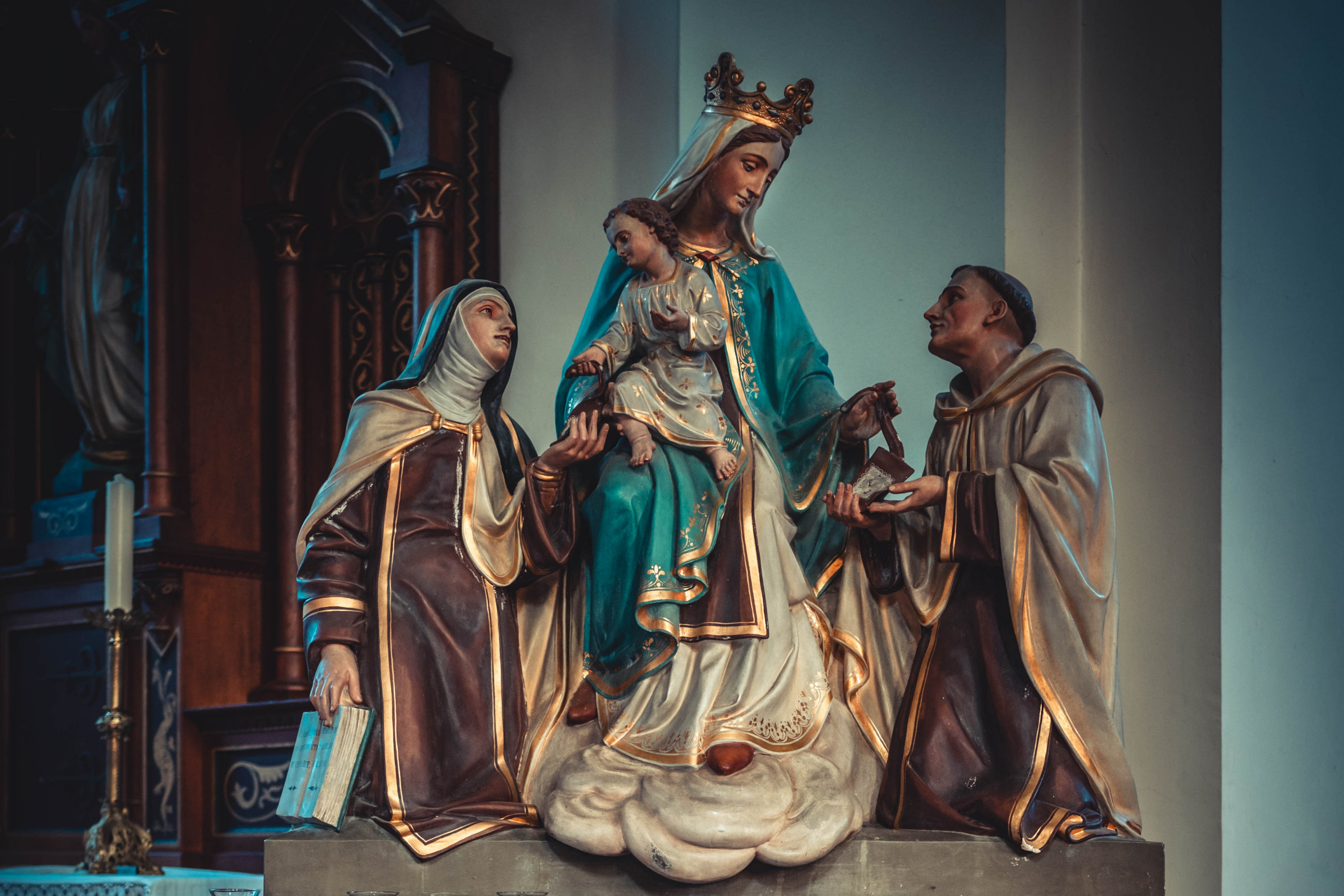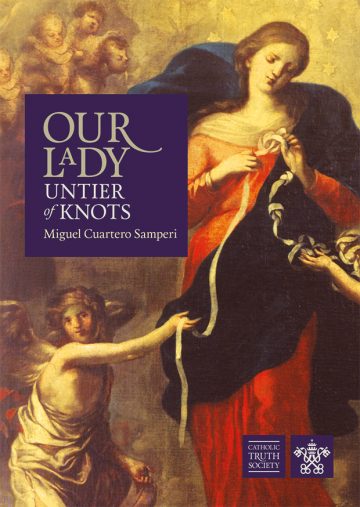There’s a church in Lourdes in the south of France called the Underground Basilica. Hanging from the pillars, there are dozens and dozens of huge images, pictures of the saints. Some of them are reproductions of famous paintings, some of them authentic photographs.
When I stand in the centre of the building, I’m overwhelmed by a sense of the family of the Church: that we are not alone, that we belong to this great family of faith that stretches back to Jesus Christ and up to heaven.
In the Bible a “vocation” is a calling, a purpose. The fundamental human vocation is to live a life of holiness, to be a saint. Not just to be a saint in heaven, but also to become a saint on this earth.
Jesus Christ gave his life for us in order to save us and to sanctify the Church. He gives us the Holy Spirit so that we can become holy as he is holy.
The saints are not just heroic people who live in history books. They are ordinary Christians who tried to live their faith without holding anything back, to love God with their whole hearts, to love those around them without counting the cost, to give their lives to something truly worthwhile. This is what we were made for. The vocation to holiness gives a profound meaning to each human life.
A great example for me is St Thérèse of Lisieux. She was a young nun in a convent in northern France. She felt she had a special mission, but she couldn’t work out what it was. She prayed intently. She read the Bible, especially the letters of St Paul. And she came to realise that her vocation was to love, and that this vocation included all others.
She was called to love God and her neighbour in the ordinary situations of each day. She decided to trust God, to fulfil her everyday duties with great love, and to leave the rest to him.
This spirituality is known as the Little Way of St Thérèse, because it is about being faithful to God, in the little things of everyday life: loving God and serving your neighbour. But really it is a summary of the New Testament message. Jesus said: “I give you a new commandment: Love one another, as I have loved you”. St Thérèse discovered the secret of holiness in a way that has helped many people since then.
The saints have much in common: faith, hope, charity; a love for Christ and for his Church; a passion for justice; a willingness to suffer for love; a dedication to prayer; an inner joy; a longing for heaven.
But no two saints are alike, because each one reflects the love of Christ in a unique way. Human beings are not clones. We are God’s work of art – each of us unique. We have to find our own way of loving, with all our individual strengths and weaknesses. And we have to work out what God actually wants us to do in each situation. It’s not always clear or easy.
Part of becoming a saint on earth is getting to know the saints in heaven. They are alive with Christ in heaven, and united with us through him.
Some of them have been officially recognised as saints in a formal process that is called “canonisation”. This is when the Church investigates someone’s life and concludes that their life was an example of holiness, and that they are now in heaven. But many other people are surely in heaven, praying for us, without that formal recognition.
We can learn from the example and teaching of the saints. It’s good to read about their lives and build up a storehouse of knowledge about them.
We can ask them to pray for us. Why would we do that? Because Christians pray for each other. And prayer makes a difference. It’s that simple. They are alive in Christ, and we are connected with them through him.
We can talk to them, heart to heart, and experience their spiritual friendship. We can turn especially to those who have become our patron saints because of some connection we have with their history or their vocation.
We never worship the saints. It’s strictly forbidden. Christians worship God alone. We simply honour the saints and talk to them and ask for their prayers, just as we honour and talk to Christian friends and ask for their prayers.
The saints don’t get in the way of Jesus, they help us to know him better, they co-operate with him. That’s what true Christian friendship is about: it strengthens our love for Jesus. If it doesn’t, then something is wrong.
So there are two things to do. You can pray to the saints. And you can pray that you yourself will become one too.
Questions for reflection
Can you think or some well-known saints? What are they famous for?
Who is your personal favourite saint and why? What is your experience of getting to know the saints and praying to them?
What do you think of the idea that God is calling you to be a saint? What can you do about it?!
 This blog is extracted from SYCAMORE: The Catholic Faith Explained.In SYCAMORE you will find answers to the most common questions about life and faith, whether you want to deepen the faith you already have or are exploring the faith for the first time.
This blog is extracted from SYCAMORE: The Catholic Faith Explained.In SYCAMORE you will find answers to the most common questions about life and faith, whether you want to deepen the faith you already have or are exploring the faith for the first time.
To learn more about the Catholic faith in an approachable way, or for help passing it on to others, get your copy of SYCAMORE today.





